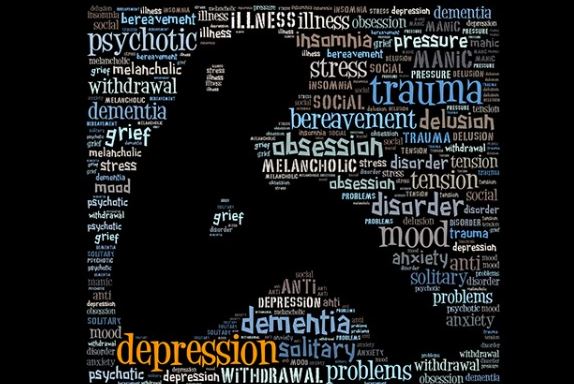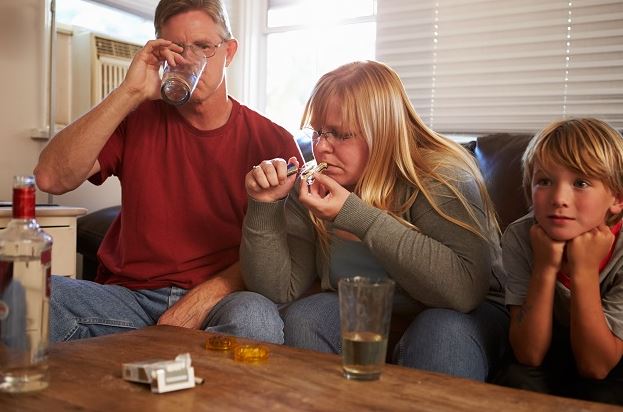From different types of addictions to reasons people become alcoholics, we’ve compiled everything you need to know about alcoholism. Read on to know more about alcohol help!

Hey there! Drinking alcohol for relaxation may seem all fine. But alcohol addiction is a severe problem that may lead to both physical and mental difficulties and may even get life threatening. If you’ve been drinking for a while now and you feel you’re facing problems due to alcohol then we’re here to help.
If you’ve decided to quit alcohol then it’s the best step to take towards well being. Or if you’re still wondering if you’re an alcoholic or not, whether you’re turning into one, we’ve compiled everything about alcohol help. From symptoms to different types of alcoholics to staying sober after alcohol assistance program, here’s everything you need to know!
What is Addiction?
Addiction is defined as a complex condition where a person is dependant on a particular substance or activity. Sometimes it’s not harmful but sometimes it may turn into a dangerous brain disease that is manifested by compulsive substance use inspite of harmful consequences.
 Signs of Alcoholism
Signs of Alcoholism
There are various symptoms of alcoholism. While there are many signs that are recognizable, others may be difficult to identify. Sometimes mild alcohol abuse is overlooked. But a minor issue can turn dangerous over time. There isn’t any exact way to detect alcoholism, symptoms always co-occur and one problem may overlap another, fueling additional problems down the lane.
If you need alcohol in your body to feel normal then you definitely need help and admittance doesn’t have to be hard. Some of the common signs of alcoholism are:
1. Experiencing temporary blackouts.
2. Short-term memory.
3. Extreme mood swings and signs of irritability.

4. Making excuses to consume alcohol to feel relax, to deal with stress or feel normal.
5. Drinking alone or secretly.
6. Becoming isolated or distinct from family and friends.
7. Choosing to drink alcohol over other responsibilities.
8. Feeling hungover when not drinking.
Also, a few other symptoms include impaired thinking, mumbled speech, poor coordination, memory impairment, diverting focus from work and becoming distressed when not drinking.
Is Alcohol a Drug?
A drug is as defined by Webster’s Dictionary as, “Something, often an illegal substance that causes addiction, habituation, or a marked change in consciousness.” So, alcohol fits into the category of the drug if we go by the definition. Alcohol is categorized under depressants amongst the various types of drugs, even though it causes a feeling of elation within the first hour or so of consumption.
In fact, its depressant-related effects come into play only when the effects of consumption start to wear off. Alcohol is also often associated with socialization and celebrations, making it much more complicated than other drugs.
Alcohol Help: Reasons People Become Alcoholics
Alcoholism is also known as alcohol use disorder (AUD) is a medical term used by doctors for any kind of mental or physical health problems that may be caused due to drinking alcohol. Every person has different needs when it comes to alcohol use disorder (AUD). Alcoholism is mainly categorized into two types:
- Alcohol abuse
- Alcohol dependence
According to TalbottRecovery.com, “Alcoholism is a result of a combination of genetic, psychological, environmental and social factors. The more risk factors a person exhibits, the more likely they are to become an alcoholic. And sometimes those risk factors are entirely out of the person’s control.”
So, here are a few common causes of alcoholism:
1. Drinking At an Early Age
Those who begin to drink early are more likely to end up as alcoholics. According to the National Council on Alcoholism and Drug Dependence, Inc. “Individuals who first use alcohol before the age of 15 are five times more likely to suffer from alcohol abuse or alcohol dependence than those who first used alcohol beginning at the age of 21 or older.”

This is due to the increased level of tolerance in the body and mind. Physical dependence on alcohol also increases as they get older.
2. Mental Health Problems
For someone who is already having a mental health issue, alcohol seems to be a solution as drinking may seem to temporarily ease those feelings. This can easily resort into more drinking and lead to alcoholism. Anxiety, depression, bipolar disorder or other mental health issues can increase the risk of alcoholism.

3. Stress
This might be one of the major reasons that one may turn into an alcoholic. Most of them work in stressful environments and to unwind their hectic schedules, one may start to drink, which in turn leads to heavy drinking in the future.
 4. Family History
4. Family History
Genetics also plays an important role in alcoholism. If you have a parent or a relative who is an alcoholic, makes you four times more likely to be one yourself, as per the American Academy of Child and Adolescent Psychiatry.

One reason is genetics but other factors, like environment that you’re surrounded in, also come to picture. Spending time with people drinking or abuse alcohol can influence you to do the same.
5. Schizophrenia
Alcoholism is particularly common among people with schizophrenia. Everyday Health notes that schizophrenics engage in substance abuse nearly four times more than the general population.
According to Wikipedia, “Schizophrenia is a mental disorder characterized by abnormal social behavior and failure to understand reality.” A few common symptoms include false beliefs, unclear or confused thinking, hearing voices that others do not, reduced social engagement and lack of motivation.

Booze provides great relief for many of these individuals who are struggling with symptoms of depression, paranoia, anxiety, and more.
6. Societal Pressure
According to NIAAA, a few times, people have explanations like they drink only to fit in with their friends. While others claim to stick to a certain type of alcohol, saying that problems exist with liquor but not with beer or wine.
Different Types of Addictions | Sub-Types of Alcohol Addiction
There are different types of addiction like substance addiction, impulse control disorders and behavioral addiction. Alcohol addiction is also a type of substance addiction. In 2007, the National Institutes Of Health, led by Dr. Howard B. Moss—the Associate Director for Clinical and Translational Research at NIAAA—released a report that identified five different types of alcoholism:
1. Young Adult
A major of 31.5 percent of all people fall under this range that is in between the age of 18-35 years. And the average age that a person in this group first becomes dependent on alcohol averages out to about 20 years old. Young adults finally breaking free from their parents’ control and experiencing the ability to make their own decisions often fall under this category.
People who are looking to have fun also surround these young addicts, and their definition of fun is centered on drinking heavily. The saddest part of this group of addiction is that it’s least likely to receive treatment. According to a survey by NIAAA, only 8.4 percent seek help, as most of them think they don’t have a problem or don’t understand the severity of the problem.
2. Young Antisocial
When a young adult suffers from an antisocial personality disorder, they differ from the above type of alcohol addiction. About 21.1 percent of all alcoholic cases are often paired with mental health problems. However, an interesting fact about this type is that about one-third of them actually seek help.
3. Functional
This subtype is characterized by middle or old age. Almost 19.4 percent of all alcoholisms is usually developed in middle age. The major reason for this includes more free time like after their children move out of the home or when they retire. People with functional alcoholism usually go to work everyday, own their homes, have families and appear to be highly successful in every way.
However, when they come home, they start drinking, which they assume to be okay. But they often end up binge drinking that may affect their family, especially children. Recovering from this type of alcoholism is really difficult as they believe they have no problem. Also, the rehab rate for this group is very low.
4. Intermediate Familial
People who have a family history of alcoholism often suffer from this category of alcoholism. When a person is raised in a culture of heavy drinking, they are likely to adapt to it. It displays their behavioral patterns and may follow in the footsteps of their family, no matter how harmful it is to their lives.
5. Chronic Severe
The most problematic of all types of alcohol addictions is chronic severe. In this type, people are daily drinkers with an excessive amount of alcohol. At this stage of alcoholism, physical addiction is high and withdraw symptoms may show up. This type of alcoholics need alcohol help ASAP.
Alcohol Help & Treatment
A key symptom of alcoholism is the inability to check or amend drinking behaviors. That means people with alcoholism may want to change but may feel they’re simply unable to do so. Sometimes, they feel they may never get sober because it’s not possible for them. An intervention is the best way to provide alcohol help in such cases. So, if your loved one is an alcoholic, find the right time and speak to them.

An intervention can be held right after an alcohol aftermath like arrests, hospitalizations, domestic disputes, job losses, accidents etc. For self-alcohol help, you can even make a list of benefits and costs of drinking and not drinking. And make a progress note, too. You can even check out the questionnaire by NCADD and know if you’re an alcoholic and seek treatment.
It is always best to seek advice or therapy from a healthcare provider. Because sometimes alcohol withdrawal may lead to withdrawal symptoms and you may find it difficult to cope with the pain. Also, there are numerous centers to help overcome alcoholism. A good step is also to open up to a counselor or helpline. Rehab 4 Alcoholism is a free helpline set up to assist individuals who experience addiction.
One such popular organization is alcoholics anonymous. Read on to know more about it!
Alcoholics Anonymous
Alcoholics Anonymous is an international mutual aid fellowship. The purpose of the aid is to provide alcohol help by enabling its members to stop drinking and staying sober and help other alcoholics achieve sobriety.

It was founded in 1935 by Bill Wilson and Dr. Bob Smith in Akron, Ohio. AA’s With other early members, Bill Wilson and Bob Smith developed AA’s Twelve Step program of spiritual and character development. AA’s initial Twelve Traditions were introduced in 1946 to help the fellowship be stable and unified while disengaged from “outside issues” and influences.
Alcoholics Anonymous Steps
The relative success of alcoholics anonymous is that an alcoholic who no longer drinks has always a faculty for “reaching” and helping an uncontrolled drinker. So, the AA program operates when a recovered alcoholic passes his story of the drinking problem and describes the sobriety he found through AA and invites a newcomer to join. The heart of the suggested program for alcohol help involves 12 steps:
 How Does Alcoholics Anonymous Help People Deal with Alcoholism?
How Does Alcoholics Anonymous Help People Deal with Alcoholism?
1. We admitted we were powerless over alcohol – that our lives had become unmanageable.
2. Came to believe that a power greater than ourselves could restore us to sanity.
3. Made a decision to turn our will and our lives over to the care of god as we understood him.
4. Made a searching and fearless moral inventory of ourselves.
5. Admitted to god, to ourselves and to another human being the exact nature of our wrongs.
6. Were entirely ready to have god remove all these defects of character.
7. Humbly asked him to remove our shortcomings.
8. Made a list of all persons we had harmed and became willing to make amends to them all.
9. Made direct amends to such people wherever possible, except when to do so would injure them or others.
10. Continued to take personal inventory and when we were wrong promptly admitted it.
11. Sought through prayer and meditation to improve our conscious contact with god as we understood him, praying only for knowledge of his will for us and the power to carry that out.
12. Having had a spiritual awakening as the result of these steps, we tried to carry this message to alcoholics and to practice these principles in all our affairs.
So, even if you’re not able to join a membership program like alcoholics anonymous, one can still take guidance from these steps to end your battle with alcoholism. However, it’s always important to seek professional help.
Hope you found our guide to alcohol help symptoms and types of alcoholism helpful. Tweet your thoughts @shilpa1ahuja!
Also, read:
– Famous Recovering Alcoholics: Celebrity Addicts & Alcoholic Success Stories
– Eating Disorder Help & Success Stories from Celebrities Who’ve Recovered
– Alcohol Withdrawal: Symptoms, Treatment, Medications, FAQs & More
– Alcoholism Treatment Program: Options & Steps to Know Before Seeking Help

Sahana is a Senior Staff Writer at ShilpaAhuja.com. With an experience in fashion and lifestyle writing, Sahana is responsible for Indian and international fashion week coverage every year, and is developing an expertise in apparel trend forecasting. She also writes about health and fitness, having pursued yoga for 6 years now. She’s not a gym person at all but is all for “running in the park” and is an amateur cyclist. Books and coffee are her other passions. She’s also an amateur photographer. She’s a hardcore Bollywood fan and she loves to cover the nostalgic topics on the same. From fashion trends to famous characters, she can make anyone love Bollywood! Her best article has been 90s Bollywood fashion, a readers’ favorite so far! Prior to her experience with ShilpaAhuja.com, Sahana has written as a freelance author for online magazine, Mashup Corner, and interned at EventsHigh as a content writer. Her blogs on basic fashion, makeup, fitness and city’s food joints that gave her a chance to experiment with her writing. She also has voiced her opinions about feminism and equal rights for men and women at PolkaCafe journals and after quitting her job, she decided to take up writing as her full time career.
Sahana is an engineering graduate and has worked in an MNC, Tesco, for more than a year as an Operations Support. It was her sheer love for fashion that made her quit the monotonous 9 to 5 job to pursue a career in the fashion industry. She’s originally from Bangalore and is currently settled in Chennai (she’s loving the city)! For any queries and discussions, contact her at [email protected]. You can also tweet her at https://twitter.com/Sahana_17
 Signs of Alcoholism
Signs of Alcoholism 4. Family History
4. Family History How Does Alcoholics Anonymous Help People Deal with Alcoholism?
How Does Alcoholics Anonymous Help People Deal with Alcoholism?